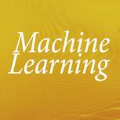In recent years, online reviews play a vital role for promoting any kind of product or services. Businesses may embed fake reviews in order to attract customers to purchase their products. They may even highlight the benefits of their own product or criticize the competition's product. Marketers, advertisers, and other online business users have incentive to create fake positive reviews for products which they want to promote or give fake negative reviews for products which they really don't like. So now-a-days writing a deceptive review is inevitable thing for promoting their own business or degrading competitor's reputation. Thus, identifying deceptive reviews is an intense and on-going research area. This research paper proposes machine learning model approach to identify deceptive reviews. The paper investigates the performance of the several experiments done on a Deceptive Opinion Spam Corpus dataset of restaurants reviews. We developed a n-gram model and max features to identify deceptive contents with a particular focus on fake reviews. Further, we conduct a benchmark study to investigate the performance of two different features extraction techniques and apply five machine learning classification techniques. The experimental results show that passive aggressive classifier outperforms other algorithms, and it reaches the highest accuracy not only in text classification but also to fake reviews. We also study the data augmentation and implement different deep learning techniques.
翻译:暂无翻译



